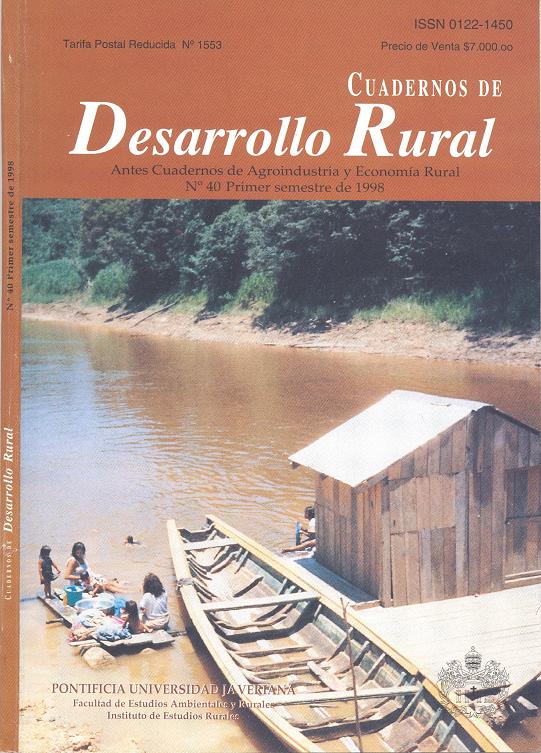Abstract
JResumenEl presente trabajo propone comprender los comportamientosde aquellos productores que no han podidodar respuestas a los cambios ocurridos en los últimosaños en los mercados de productos hortícolas y de losque, por el contrario, sí pudieron hacerlo. Se parte dela hipótesis de que los productores optarían por unaestrategia productiva y comercial en función de undeterminado volumen de capital económico y culturalque permita apreciar y evaluar las oportunidadesposibles. La línea de acción resultante conducirá a losagentes a mantener, mejorar o desmejorar su posiciónen el espacio social.Los resultados muestran que no siempre es el capitaleconómico la variable determinante de la elección delas estrategias. Las diferencias entre éstas puedenatribuirse más al capital cultural incorporado por estosagentes en sus trayectorias históricas. Aun en condicionesobjeti vas de escasez de capital económico perocon presencia de otros capitales, el habifus puedegenerar respuestas capaces de trascender la posiciónde clase. También son razonables las líneas de acciónque han conducido a mantener o desmejorar la posiciónen el espacio social: las condiciones objetivas deescasez de capitales impiden pensar otras alternativascomo oportunidades posibles de ser llevadas a lapráctica.Cuadernos de Desarrollo Ruralis registered under a Creative Commons Attribution 4.0 International Public License. Thus, this work may be reproduced, distributed, and publicly shared in digital format, as long as the names of the authors and Pontificia Universidad Javeriana are acknowledged. Others are allowed to quote, adapt, transform, auto-archive, republish, and create based on this material, for any purpose (even commercial ones), provided the authorship is duly acknowledged, a link to the original work is provided, and it is specified if changes have been made. Pontificia Universidad Javeriana does not hold the rights of published works and the authors are solely responsible for the contents of their works; they keep the moral, intellectual, privacy, and publicity rights.
Approving the intervention of the work (review, copy-editing, translation, layout) and the following outreach, are granted through an use license and not through an assignment of rights. This means the journal and Pontificia Universidad Javeriana cannot be held responsible for any ethical malpractice by the authors. As a consequence of the protection granted by the use license, the journal is not required to publish recantations or modify information already published, unless the errata stems from the editorial management process. Publishing contents in this journal does not generate royalties for contributors.


